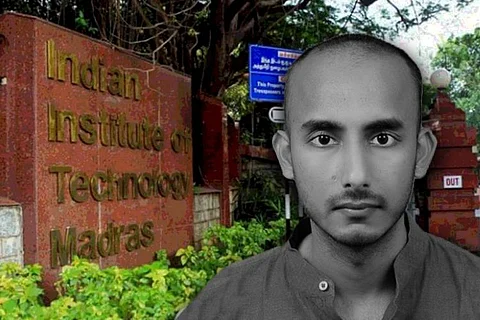

Responding to the findings of a committee constituted by IIT Madras to probe allegations of caste-based discrimination against professor Vipin Veetil, MA students of the Department of Humanities and Social Sciences (HSS) issued a statement on Monday, April 25, calling the circumstances behind Dr Vipin’s resignation and the subsequent investigation “troubling and hypocritical”. Expressing their solidarity with the assistant professor, the students emailed copies of the statement to the Dean of Academic Studies, the director of IIT Madras, and the HSS department head. The email describes the committee’s findings – which declare the professor’s allegations as baseless – as an attempt at “sweeping the issue under the carpet”, which “worsens the dignity and trust in the institute rather than solving the problem”. Further, the statement says, “from the information available to us, the investigation by the fact-finding committee seems to have been marred by a lack of basic understanding of the systemic nature of caste-based discrimination and a degree of carelessness that reeks of complicity.”
The committee’s report, submitted a few months ago, said it found ‘‘no evidence of the decisions being biased due to caste discrimination, since most of the department faculty members had hardly interacted with Dr Veetil”. While Veetil had alleged that the department’s Brahmin faculty members had discriminated against him based on caste, the report said that the faculty had been unaware of the professor’s OBC background as “he had not even specified in his application that he belonged to the OBC category”.
In response to the committee’s findings, Veetil wrote a letter to the National Commission of Backward Classes (NCBC) demanding an independent investigation, citing several oversights and procedural lapses in the committee’s probe. The professor, who had taught economics at the Humanities department, had resigned in 2020 after his concerns regarding the alleged caste-based discrimination against himself and SC/ST/OBC candidates at the institute went unaddressed. In their statement, the students lend their support to Veetil’s demand for an independent probe. “We, the department student body, thus call upon the department and the institute to facilitate an independent investigation by a committee from the National Commission for Backward Classes (NCBC), as Dr Vipin has requested, as well as a greater degree of transparency regarding the incident and steps taken to remedy it.”
The students describe Veetil’s courses as “engaging and academically rigorous”, adding that he had also been supportive of students outside the classrooms in many ways. With regard to the committee’s alleged understanding of caste, the statement says that “caste is not an outdated and distant social phenomenon to be studied only within the confines of the classroom; it exists in concrete and varied forms both within institutions as well as in society at large.” In addition, the students draw attention to another matter they consider pressing — Veetil’s allegations regarding the sabotage of SC/ST/OBC requirements in faculty appointments. In a letter to Union Education Minister Dharmendra Pradhan on February 3, Veetil had said, “Areas of advertising are being narrowed by excluding areas that may attract anti-caste individuals, and attempts are being made to raise minimum criteria for selection.” He also stated that “the narrowing of the areas advertised will limit the number of SC/ST and OBC candidates who are eligible to apply and thereby decrease the chances of finding suitable candidates.”
The third issue highlighted by the students is the lack of a caste and minorities grievance redressal cell on campus. “The need for a redressal body for instances of caste-based harassment and discrimination is sorely felt, not only with regard to this particular incident, but also for other instances of caste discrimination that occur in the institute,” they say.